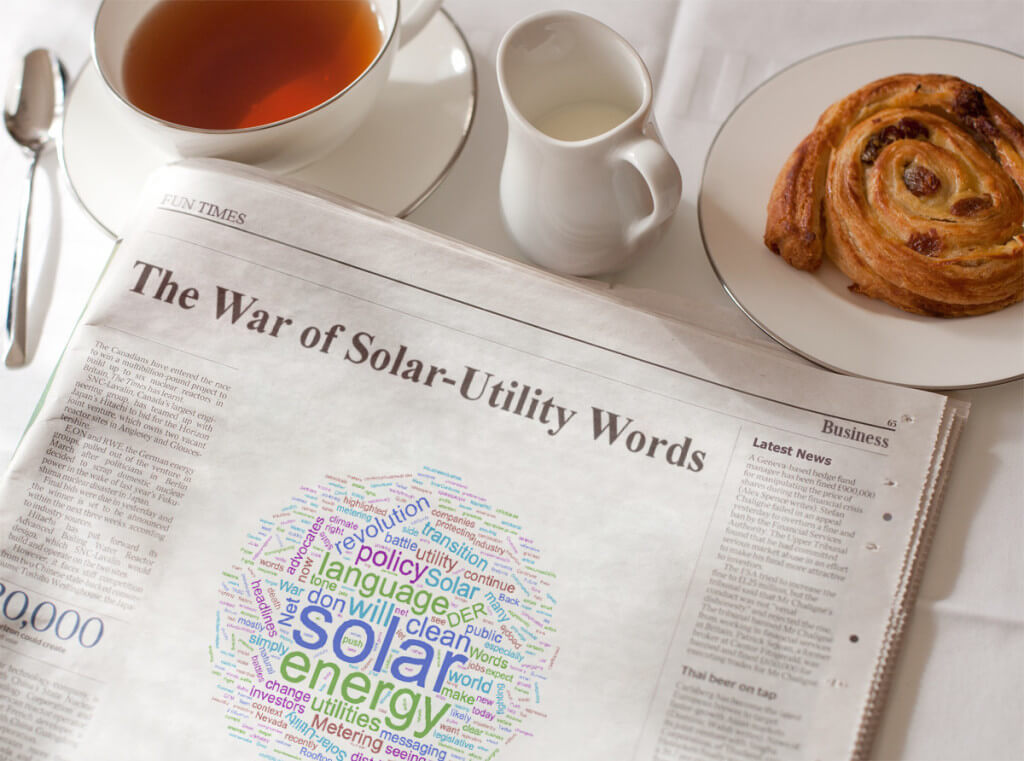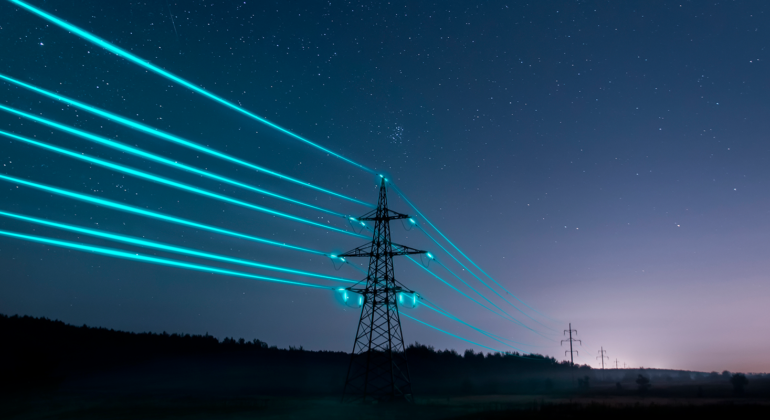
I recently had an exchange on Twitter about the war-of-words-like messaging that we’re seeing in solar headlines and other content, mostly having to do with state net metering battles.
Here are a few examples with conflict-related words highlighted in bold:
Battles Over Net Metering Cloud the Future of Rooftop Solar
California’s Solar Industry Fights Back On Net Metering 2.0
Sunrun, TASC Fight To Keep Net Metering In Maine
PAC Fronts Formed In Nevada Net Metering Battle
Solar Fighting For Survival In Mass. Energy Transition
Arizona Chamber to Arizona Solar Industry: Drop Dead
Utilities Push Back Against Solar
Nevada PUC’s Rooftop Solar Scrum Continues
Of course, there are headlines that don’t have any conflict-infused language, but we’ve certainly seen solar and utility spokespeople predicting “death spirals” and “job-killing.”
Does war-of-words-like messaging help Team Solar win legislative battles and capture the hearts and minds of the public, or does it ultimately make us shoot ourselves in the legislative foot? There are no studies that I’m aware of that says it affects either side of the battlefield, but I do believe this language is natural and will mostly likely continue for many years.
Before I explain why, let’s be clear: Reporters and editors come up with their own headlines, so it’s not like solar advocates and utility PR people dictate or control this aggressive language. Nevertheless, this conflict-imbued wordplay reflects the passionate tone of our public solar policy disagreements. Given the current state of expiring net metering caps, I don’t expect the tone to change.
Ideally in tone and action, the solar and DER industries want utilities to be “partners” in a smart, distributed grid-tied world, not cast as “enemies” that inflict casualties on solar Davids and utility Goliaths. In fact, a recent article by Julia Pyper on GTM highlighted how at least some utilities want to address consumer preferences for more solar.
So there is opportunity for a truce in the War of Solar-Utility Words, but I don’t think it will hold right now for five main reasons:
- It’s just too early. We are in the middle of an energy revolution, and it’s natural to describe that revolution with an emotional context that pushes utility and policy stakeholders to understand that solar, wind, and other distributed energy resources (DER) are here and changing the world today, whether the utilities and policymakers are prepared for it or not.
- There’s a ticking clock. Desperate times make for desperate words. Many new energy economy investors impatiently wait for returns on their investments, leading to a growing number of solar companies forming policy arms and hiring lobbyists to push legislators and regulators to envision the jobs and tax revenue that a distributed solar world brings. And let’s not forget climate change. The combination of edgy new energy investors and serious climate change concerns puts pressure on solar, storage, and grid-edge companies to aggressively make their case on why the 21st-century energy transition must happen sooner rather than later.
- It’s personal. Stakeholders on both sides take this clean energy revolution personally. Both see the other side as threatening their jobs, their profits, their growth, and especially their customers and their investors. In the context of “fighting” for clean air and the health and welfare of kids and grandkids, clean energy policy decisions truly can be framed as a life-or-death battle.
- Battle language is simple. Our clean energy transition is very complicated, but battle language frames the issues simply, and that’s especially important for energizing public opinion. “It’s us against them.” “It’s small businesses fighting big business.” We see wording like “job killers” and “protecting ratepayers” as well as “energy independence” and protecting an individual’s “solar rights.”
- Making noise gets attention. Quite simply, if the DER and solar industries don’t push hard with policymakers, the utilities will have less incentive to compromise or change quickly. We’re in the midst of a clean energy revolution, and revolutions typically involve a great deal of shouting and protest.
Language expresses what people see in the world, and right now we’re seeing many disagreements on how the planet will transition to solar and clean energy. It’s my sincere hope that utilities, solar and DER advocates will soon agree on clear national and local policy paths toward making this historic energy transition a reality, but until then I expect the War of Solar-Utility Words to continue.
Tor “Solar Fred” Valenza is the chief marketing officer of solar at Kiterocket, a full service PR and marketing agency. Contact him on Twitter at @SolarFred and @Solar_ThinkTank.


